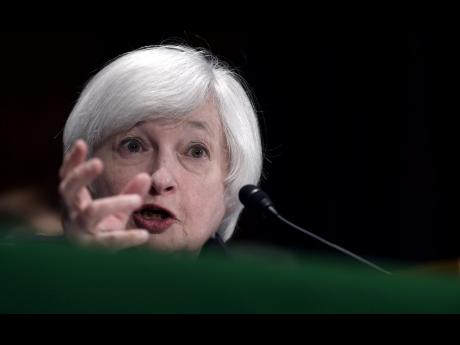Fed bars bailout of failing firms
United States Federal Reserve officials have moved to prevent the central bank from bailing out failing companies, a power it exercised during the 2008 financial crisis.
The Fed governors voted 5-0 on Monday at a public meeting to downsize the Fed's emergency lending powers.
Only broad lending programmes designed to revive frozen markets - not loans to individual firms - will be allowed. The Fed spent about US$2 trillion on such a programme to ease a credit crunch during the financial meltdown, aiming to spark lending to consumers and small businesses.
The 2010 law enacted by Congress overhauling financial regulation required the Fed to impose the restraints. Lawmakers of both parties had objected to the Fed's emergency aid to several big Wall Street banks and insurance giant American International Group.
"Emergency lending is a critical tool that can be used in times of crisis to help mitigate extraordinary pressures in financial markets that would otherwise have severe adverse consequences for households, businesses, and the US economy," Fed Chair Janet Yellen said before the vote.
The new rule takes effect on January 1.
For any emergency lending that the Fed does make, interest rates must be set high enough so as to encourage repayment as fast as possible.
The Fed adopted some of the restrictions proposed in legislation by a bipartisan group of lawmakers led by Senators Elizabeth Warren, D-Massachusetts, and David Vitter, R-Louisiana.
The issue of limits on the government's power in responding to financial catastrophe came to the fore in an unusual legal case over the Fed's US$85 billion bailout in September 2008 of then-teetering AIG. Former AIG Chairman and CEO Maurice Greenberg sued the government, asserting that the terms of the federal rescue loan were unfairly punitive.
The bailout violated the Constitution's Fifth Amendment by taking control of AIG with 80 per cent of the stock without "just compensation", Greenberg's suit alleged. He demanded some US$40 billion in damages for himself and other AIG shareholders from the government.
The government insisted that its actions in the AIG bailout were legal, proper and effective, and that the terms were as tough as needed to protect taxpayers from the risk of AIG failing to repay the loan.
Following an eight-week trial in fall 2014 in the US Court of Federal Claims, the judge handed Greenberg a partial victory. He ruled in June that Greenberg's allegation of excessively strict terms was valid, but rejected the former AIG CEO's demand for damages.
- AP

